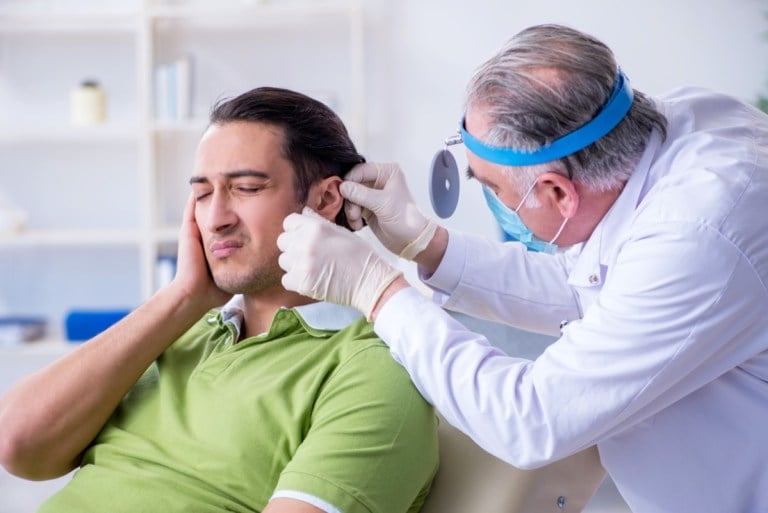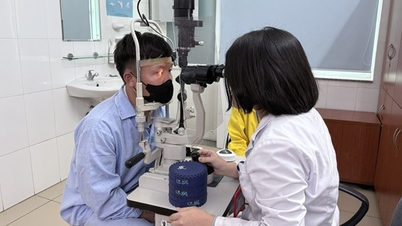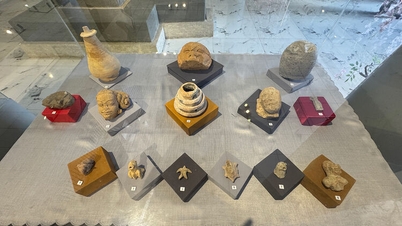Dirty water trapped in the ear can cause otitis media. Typical symptoms of otitis media include ear pain, discharge, hearing loss if the ear canal is swollen, and other symptoms, according to the US health website Healthline .

To treat water in the ear while swimming, people can use over-the-counter ear drops or sprays.
To prevent ear infections, people can drain water from their ears and dry their ears in the following ways:
Lie on your side
Lying on your side is one of the first things you should do when water gets stuck in your ear. Simply lie on your side on a towel for a few minutes and the water will drain out.
Wiggle your earlobes
Gently pull or wiggle your earlobes while tilting your head slightly to one side to allow the water to drain out. If water gets into both ears, tilt your head from side to side.
Press your ears
This method works by using your hand to press firmly on the ear to create suction and draw out the water. First, you need to tilt your head to one side, use the flat side of your palm to press firmly on the ear. Then, gently slide the palm that is pressed firmly on the ear back and forth. This will create suction and draw out the water in the ear.
Use a hair dryer
The heat from a hair dryer can help evaporate the water trapped in the ear. To do this, turn the hair dryer on the lowest setting and hold it about 30 cm away from the ear.
Do not leave the hair dryer alone, but move it back and forth to avoid the hot air blowing continuously on the skin, causing heat and discomfort. At the same time, pull your earlobes down so that the hot air can blow into your ears.
Use drops or sprays

In some cases, your doctor may recommend using ear drops after swimming.
In some cases, your doctor may recommend using ear drops after swimming. Over-the-counter ear drops can help dry your ears better and reduce the risk of infection inside the ear.
If you have tried the above methods and they do not work, you should limit the use of cotton swabs, fingers or any other objects to poke into your ears. This action can cause bacteria to reach the ear, causing water to penetrate deeper, causing damage to the ear, or even worse, perforating the eardrum, according to Healthline . Then you should see a doctor.
Source link





![[Photo] Lam Dong: Panoramic view of Lien Khuong waterfall rolling like never before](/_next/image?url=https%3A%2F%2Fvphoto.vietnam.vn%2Fthumb%2F1200x675%2Fvietnam%2Fresource%2FIMAGE%2F2025%2F11%2F20%2F1763633331783_lk7-jpg.webp&w=3840&q=75)
![[Photo] National Assembly Chairman Tran Thanh Man holds talks with South Korean National Assembly Chairman Woo Won Shik](/_next/image?url=https%3A%2F%2Fvphoto.vietnam.vn%2Fthumb%2F1200x675%2Fvietnam%2Fresource%2FIMAGE%2F2025%2F11%2F20%2F1763629724919_hq-5175-jpg.webp&w=3840&q=75)
![[Photo] President Luong Cuong receives President of the Senate of the Czech Republic Milos Vystrcil](/_next/image?url=https%3A%2F%2Fvphoto.vietnam.vn%2Fthumb%2F1200x675%2Fvietnam%2Fresource%2FIMAGE%2F2025%2F11%2F20%2F1763629737266_ndo_br_1-jpg.webp&w=3840&q=75)





































































































Comment (0)